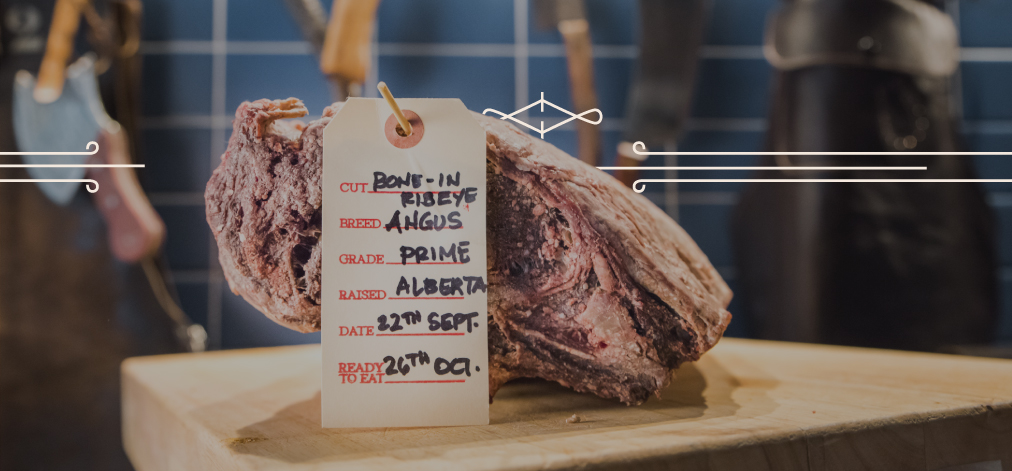
Interview with Michael Munton owner, Benchmark Angus Farms.
Chuck sat down with Michael Munton owner, Benchmark Angus Farms & Chef Sal Polizzi. .
The topic: Dry ageingWhat is this? What is the process? Why is it better? Read on to learn more...
Chuck: For the folks who have never heard of dry-aged beef, could you please explain what it is?
Michael: Dry-aged beef is a non-vacuum-sealed beef product. The beef in the dry-age cooler is exposed to moisture, oxygen, a specific temperature…those kinds of things. While something is being dry-aged, it allows the enzymes and proteins in the beef to be broken down, which makes the product more tender. And in this dry-aged state, the product is also becoming much more flavourful. The difference between the dry-aged beef and a wet-aged product (sealed in a cryovac) is that with wet-aged, you've got a product that is ageing, but it's like ageing something in a bucket of water. You have some dilution of flavour.
Tender. More flavour. We’re listening…
“In this dry-aged state, the product is also becoming much more flavourful”
Chuck: We have a dry age fridge at Chuck’s Steakhouse. Can you explain what’s so special about this?
Michael: The fridge is a special, climate-controlled cooler, rarely found in steakhouses. As the beef is in that dry-age cooler, it is losing moisture out of that product - losing real weight. From when the beef arrives until it is served, there is an appreciable difference in what is actually sellable product. A 15 or 16 pound cut would typically be reduced to 12 or so pounds. Essentially a more concentrated and saturated natural flavour is the result.
Chuck: From a wet-aged steak to a dry-aged steak, what kind of different flavour profiles will we taste?
Michael: Drastically different. The amount of beef flavour and quality of beef flavour you get from dry aged is like comparing apples to oranges. A product that is wet aged for an extensive time (30-35 days) it is going to be tender, but you'll be missing out on all the flavour being captured in the dry-aged product.
Chef Salvatore: Because there is oxygen exposed to the dry-aged beef, the beef is essentially still living. After 5 or 6 weeks, the dry-aged beef is just better.
Chuck: How long do we dry-age beef for?
Chef Salvatore: The longer the beef ages, the more intense the flavour & tenderness will be - while also losing more of the product. Benchmark also hangs their sides for 14 days, which nobody else does, before we even start the dry ageing. It's all about adding flavour to the beef. Chuck's will generally dry-age it's beef for 45 days, but have aged some cuts as long as 95 days.
Well there you have it folks. It’s pretty simple, as Chef Sal said, “dry-age beef is just better”.



